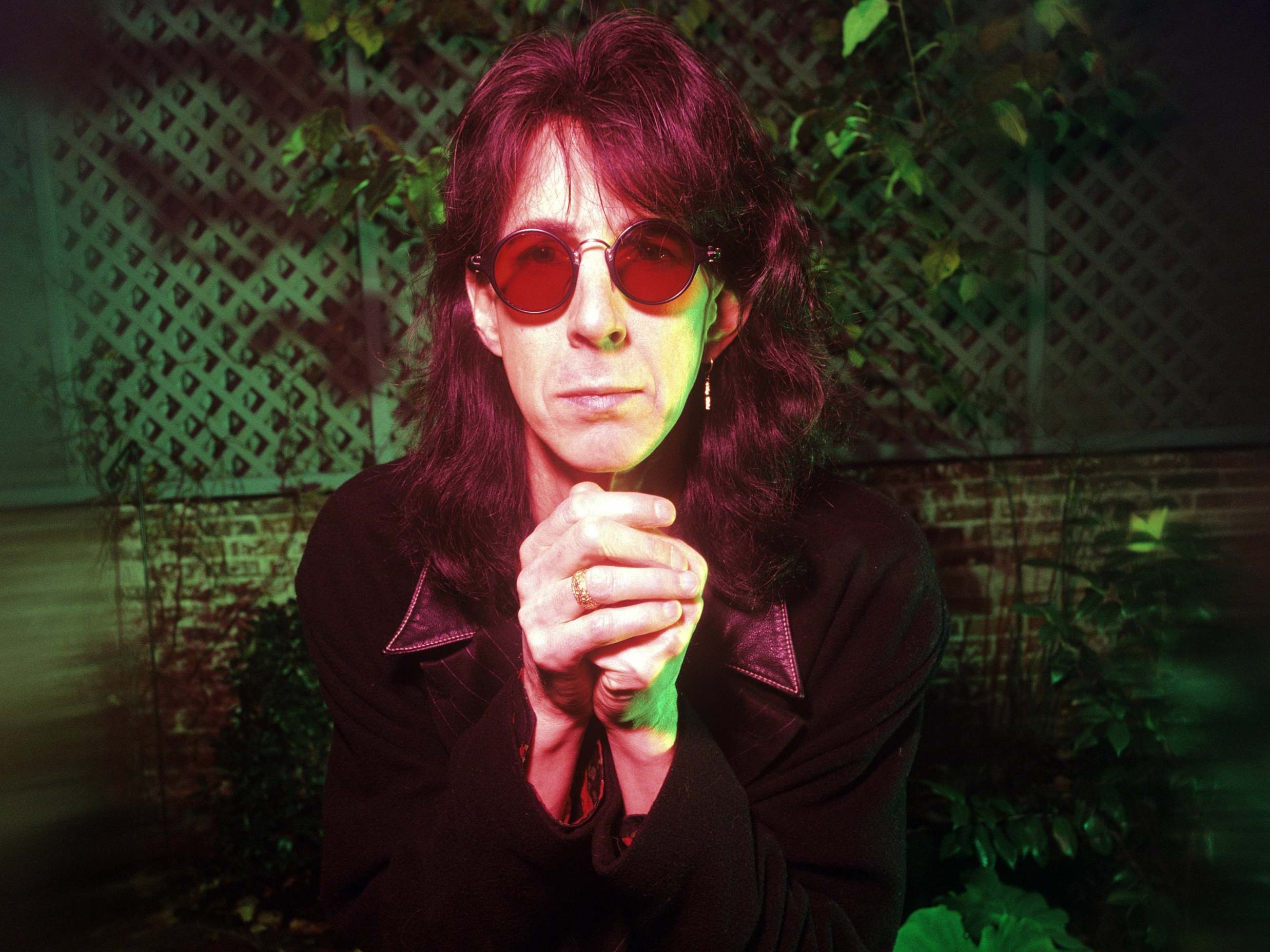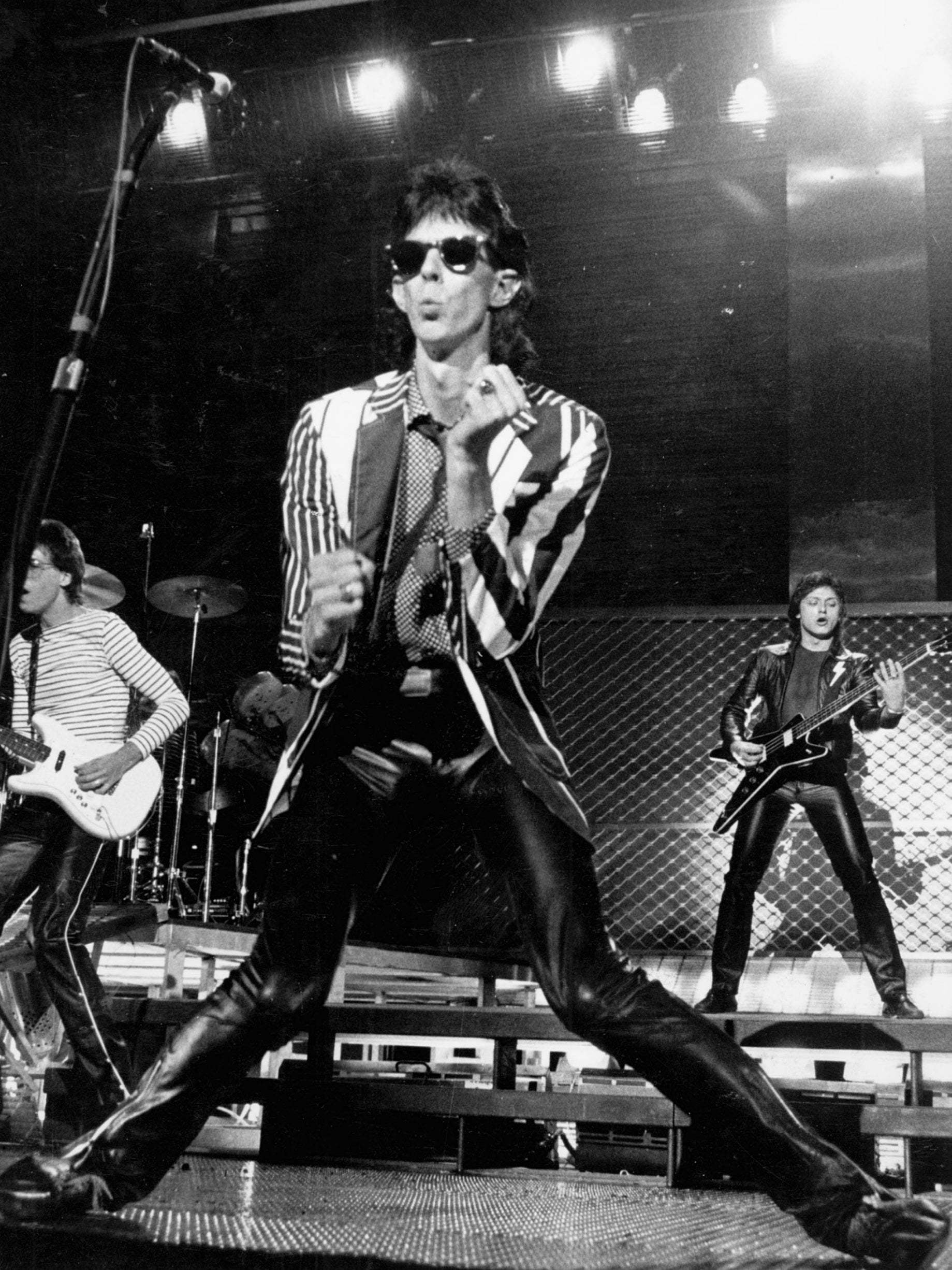Ric Ocasek: Singer-songwriter whose band The Cars were a radio and MTV staple
His songs powered the group’s ascent in the late 1970s and later he was an in-demand producer

Your support helps us to tell the story
From reproductive rights to climate change to Big Tech, The Independent is on the ground when the story is developing. Whether it's investigating the financials of Elon Musk's pro-Trump PAC or producing our latest documentary, 'The A Word', which shines a light on the American women fighting for reproductive rights, we know how important it is to parse out the facts from the messaging.
At such a critical moment in US history, we need reporters on the ground. Your donation allows us to keep sending journalists to speak to both sides of the story.
The Independent is trusted by Americans across the entire political spectrum. And unlike many other quality news outlets, we choose not to lock Americans out of our reporting and analysis with paywalls. We believe quality journalism should be available to everyone, paid for by those who can afford it.
Your support makes all the difference.Ric Ocasek’s deadpan delivery, sardonic lyrics and muscular guitar playing helped to make The Cars one of the most beloved and influential rock bands of the late 1970s and 1980s.
Influenced by classic rockers like Buddy Holly as well as more adventurous acts such as the Velvet Underground and Roxy Music, Ocasek – who has died aged 75 – bridged pop, new wave and hard rock when he and bassist-singer Benjamin Orr co-founded The Cars in Boston in 1976, joined by guitarist Elliot Easton, keyboardist Greg Hawkes and drummer David Robinson.
Ocasek wrote nearly all the band’s hits and split vocal duties with Orr, with whom he had played in folk and rock groups for nearly a decade. Their last and most enduring collaboration, The Cars, “drove the fury and intellectual adventure of punk rock out of the underground, firmly and forever into the American mainstream”, according to the Rock & Roll Hall of Fame, which inducted the band last year.
Mixing disco-tinged synthesiser lines and catchy guitar riffs, The Cars emerged from the Boston club scene to become a fixture of MTV and a staple of classic rock and oldies radio stations for decades. Their 1978 self-titled debut, featuring the hits “My Best Friend’s Girl” and “Just What I Needed”, helped to popularise a new model of slick, radio-friendly guitar pop, forming the sonic template The Cars would follow for the next decade.
The band’s 1984 single “Drive” – a lyrically downcast ballad sung by Orr – became their biggest hit the following year after it was chosen to accompany a video of the Ethiopian famine that was shown during Live Aid at Wembley Stadium. (The Cars themselves performed in the Philadelphia Live Aid concert.)
Ocasek put out the first of seven solo albums, Beatitude, in 1982, and built up a CV as an in-demand producer, working with Bad Brains, Guided by Voices, Hole, No Doubt, Iggy Pop and Weezer among others. He was also a mentor to aspiring artists, and for a time in the early 2000s was a senior vice president at Elektra Records.
Ocasek was born Richard Otcasek in Baltimore, Maryland, in 1944. His family moved to Cleveland when he was a teenager, after his father got a job as a Nasa computer analyst. He studied at the Ohio schools Antioch College and Bowling Green State University before dropping out. Music offered direction: after receiving a Sears guitar from his grandmother at 14, he began imitating Buddy Holly, inspired by the guitarist’s 1957 song “That’ll Be the Day”.

Supporting himself with jobs at US Steel and a wallpaper company, he played alongside Orr in groups such as Milkwood – the band recorded one album, How’s the Weather (1972), which was largely ignored – before forming The Cars. As rockers in a disco era, the musicians “felt a bit like crusaders”, Ocasek later said.
The band broke up in 1988 (in later interviews, the musicians cited exhaustion and burnout), and Orr died of pancreatic cancer in 2000. Ocasek declined to participate in a reunion group known as the New Cars, which featured singer Todd Rundgren, but he rejoined his former bandmates for a subsequent tour and seventh studio album, Move Like This (2011).
Over the decades, Ocasek continued to record as a solo artist, cracking the Top 20 with his 1986 love song “Emotion in Motion” and partnering with Billy Corgan of the Smashing Pumpkins for the 1997 album Troublizing. He also portrayed a beatnik painter in director John Waters’s movie musical Hairspray (1988); published a 2012 collection of his writing, Lyrics and Prose; and exhibited drawings, paintings, prints and photographs.
He is survived by his third wife, actor and model Paulina Porizkova – whom he married in 1989 and who announced in 2018 they had “peacefully separated” – and six children.
Ric Ocasek, musician, born 23 March 1944, died 15 September 2019
© Washington Post
Join our commenting forum
Join thought-provoking conversations, follow other Independent readers and see their replies
Comments